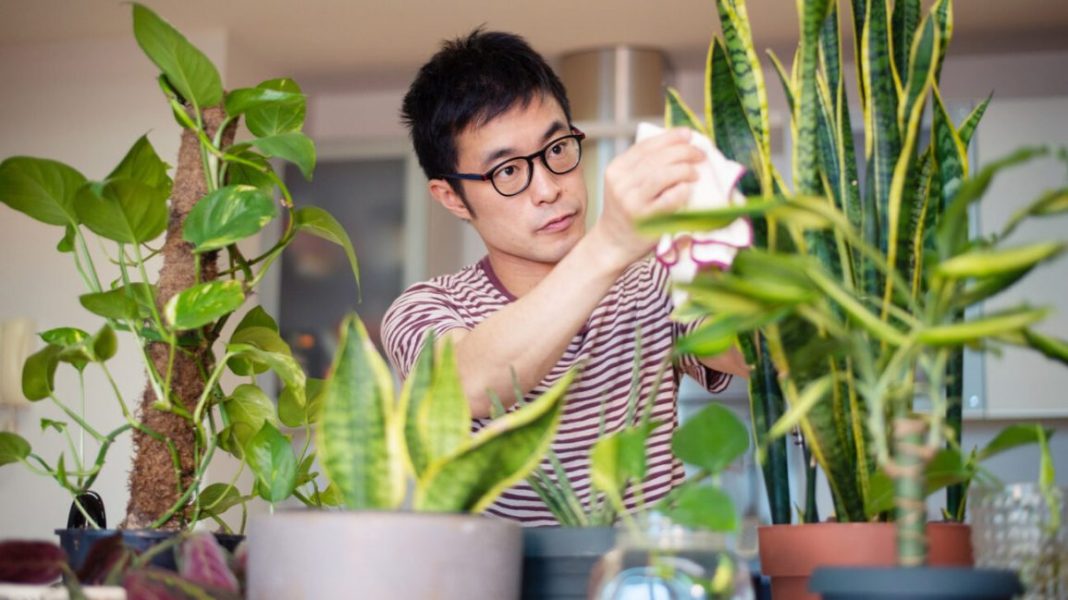Social media waves are known for their quick rise and fall, indoor gardening may last longer than most due to the several ways houseplants boost fitness and well-being.
Instagram’s greenery-inspired interior designs, plant-based podcasts, and shop online for plants subscription services are all fueling the indoor gardening trend.
Here’s what science says about the advantages of working and living in an environment with indoor plants.
Stress Levels Reduce with Indoor Plants
Plants around your house or office might help you feel more relaxed, according to research printed in the Journal of Physiological Anthropology.
Participants in the study were assigned one of two tasks: potting a plant in the house or performing a brief computer-based exercise. The physiologic markers associated with stress, such as blood pressure and heart rate, were monitored after each task.
They discovered that the participants had reduced stress when given an indoor gardening activity. The computer task led to an increase in blood pressure and heart rate.
Real Plants can Streamline your Attention.
Plastic plants, unfortunately, will not assist you in passing your tests. Researchers placed students with a fake plant, a natural plant, an image of a plant, and no plant in the classroom in a small trial with 23 participants.
According to brain scans, pupils who studied alongside real plants in the class were much more focused and concentrated than children in other groups.
Therapy with Plants
Indoor landscaping can be beneficial for persons suffering from mental diseases.
Researchers have utilized horticultural therapy to improve happiness in dementia, depression, anxiety, etc. Horticulture has been around for decades, but it has taken on a new form where medical clinics prescribe potted plants to patients suffering from depression or anxiety.
Plants Help Your Efficiency
A bromeliad could be the friendliest coworker you’ve ever had.
Greenery in the workplace has boosted creativity and productivity in multiple studies. Students in a computer room worked 12% quicker and were less anxious when houseplants were positioned nearby, according to widely referenced research from 1996.
People who had more houseplants in their workstations took less sick leaves and were more effective at work, according to a 2007 study.
Plants Help You with a More Positive Attitude at Work
A sight of the local park might boost job happiness, but you might be surprised to discover that a plant pot can do the same thing. It is found that people who worked in an office with natural components like potted plants felt more satisfied with their jobs and more committed to the company than those who didn’t.
According to the researchers, the natural ingredients served to buffer occupational stress and anxiety impacts.
Plants Positively Impact Air’s Quality
Typically, scientific evidence for phytoremediation — plants that cleanse toxins from the air — starts with NASA research from the 1980s.
Researchers were exploring ways to enhance the air quality in a closed spaceship at the time, and they discovered that houseplant roots and dirt significantly reduced volatile atmospheric compounds.
According to new research, you’d need a lot of plants to match the air-purifying performance of modern filtration and other technology.
If you decide to shop online for plants to freshen the air organically, various plants are available.
In Conclusion
House plants can be a source of enjoyment in your homes and offices. Indoor gardening reduces stress, increases creativity, efficiency, and attention, and aids in recovery. According to some data, houseplants may also improve the air quality.
If you have children or pets, it’s crucial to know poisonous species that can trigger allergies. Breathing plants in your house or your workspace can make it a healthier, happier place.

